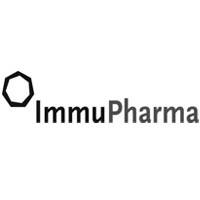Tim McCarthy, Chairman added: “In this study Lupuzor(TM) has demonstrated a superior response rate over placebo and confirmed its exceptional safety profile. We believe this gives Lupuzor(TM) a compelling product profile. We are highly encouraged by the statistical significance achieved in the Antibody Positive patient group in the Europe cohort. We continue to believe Lupuzor(TM) has the potential to bring a much needed treatment to Lupus sufferers around the world. We look forward to providing our shareholders with further updates as we move forward with this programme.”
ImmuPharma PLC (LSE:IMM), the specialist drug discovery and development company, this morning announced further analysis of the results from its pivotal Phase III trial of Lupuzor(TM), its lead programme for the potential breakthrough compound for Lupus, a potentially life threatening auto-immune disease.
This new data follows the top-line trial results published on 17 April 2018 and which may create new commercial value for Lupuzor(TM). As previously announced, across the whole study population, in those patients who had anti-dsDNA autoantibodies, Lupuzor(TM) demonstrated a superior response rate over placebo (61.5% vs 47.3%, p=0.0967), although these results were not statistically significant.
— Further data analysis demonstrated that in the Europe cohort(1) (130 patients) Lupuzor(TM) plus standard of care (“Active Group”) showed statistically significant reductions (71.1% vs 48.8%, p=0.0218) in disease activity compared to placebo plus standard of care (“Comparator Group”) in 79 patients (60.8%) who were anti-dsDNA autoantibody positive (“Antibody Positive”).
— In the US cohort (72 patients) there were 28 patients who were Antibody Positive (40%) with an equal number of 14 patients in both the Active and Comparator Groups. Of these, 5 patients were responders in the Active Group with 6 responders in the Comparator Group (35.7% vs 42.8%). This contrasting result in the US compared to the positive result in the Europe cohort, may be due to a number of differing factors between the two cohorts, which requires further investigation.
— Scientific literature indicates that approximately 60-70% of patients diagnosed for Lupus are Antibody Positive(2) . These proportions were seen in the Europe cohort (60.8% of patients were Antibody Positive) and could therefore be considered as representative of the overall Lupus population.
— In those patients who were anti-dsDNA autoantibody negative (“dsDNA negative”) there was almost no difference in disease activity reduction between the Active Group and Comparator Group.
-- Anti-dsDNA autoantibodies are a recognised biomarker for Systemic Lupus Erythematosus.
— This finding indicates that the activity of Lupuzor(TM) could be correlated with the presence of anti-dsDNA autoantibodies in Lupus patients. ImmuPharma believes that predictive biomarkers, such as anti-dsDNA autoantibodies, could allow identification of patients that are more likely to respond positively to treatment with Lupuzor(TM).
-- The results can be summarised as follows:
Full Set Active Group Comparator
Group
-------------------- ------------- -----------
N 101 101
-------------------- ------------- -----------
Anti-dsDNA
antibody positive
(N=107, 53%) 52 (51.5%) 55 (54.4%)
-------------------- ------------- -----------
Responders
in anti-dsDNA
antibody positive
patients 32 (61.5%) 26 (47.3%)
-------------------- ------------- -----------
Europe Cohort Active Group Comparator
Group
-------------------- ------------- -----------
N 65 65
-------------------- ------------- -----------
Anti-dsDNA
antibody positive
(N=79, 60.8%) 38 (58.5%) 41 (63%)
-------------------- ------------- -----------
Responders
in anti-dsDNA
antibody positive
patients 27 (71.1%) 20 (48.8%)
-------------------- ------------- -----------
US Cohort Active Group Comparator
Group
-------------------- ------------- -----------
N 36 36
-------------------- ------------- -----------
Anti-dsDNA
antibody positive
(N=28, 38.9%) 14 (38.9%) 14 (38.9%)
-------------------- ------------- -----------
Responders
in anti-dsDNA
antibody positive
patients 5 (35.7%) 6 (42.8%)
-------------------- ------------- -----------
(1) The phase III trial had two regional cohorts per protocol:
1) Europe cohort (Czech Republic, France, Germany, Hungary, Poland & Mauritius)
2) US cohort
Each cohort had patients randomised 1:1 between the Active Group and the Comparator Group.
(2) Isenberg DA, et al. Ann Rheum Dis 2016; 75:323-331. Mosca M, et al. J Rheumatol 2006; 33(4): 695-697. Gheita TA, et al. Lupus 2018; 27(7):1081-1087.
Next steps
Immupharma will continue to review the Lupuzor(TM) Phase III pivotal study’s full dataset and will provide further updates as information becomes available and as publications are submitted in medical journals and scientific congresses.
ImmuPharma will discuss these findings with its regulatory, scientific and medical experts in order to formulate discussions with the regulatory agencies on next steps. In parallel, the Company will also continue to progress discussions with potential corporate partners. At present there can be no guarantee that these discussions will result in a positive outcome for the Company but further announcements will be made as appropriate.
Extension study
The Lupuzor(TM) extension study, which was announced on 18 January 2018, is continuing and at present 44 patients have been recruited. The study is anticipated to conclude recruitment around the end of June 2018 and report results in 2019. We believe that this will provide more valuable information on the potential efficacy and safety of Lupuzor(TM).
Commenting on the results, Dr Robert Zimmer MD, PhD, Chief Scientific Officer said: “We believe these additional results in Antibody Positive patients are of great value.
The data showed that Antibody Positive patients in the Europe cohort responded significantly better when receiving Lupuzor(TM), compared to those in the Comparator Group.
Current treatments (monoclonal antibodies, steroids etc.,) prescribed to Lupus patients are essentially symptomatic treatments acting irrespectively of the antibody status of the patients. The potential efficacy of Lupuzor(TM) seems to be correlated with the presence of anti-dsDNA auto-antibodies, a biomarker for Lupus, and we hope to confirm that Lupuzor(TM) will come to be considered as a disease modifying agent.
We believe this is in line with what healthcare practitioners are seeking: precision medicines to target therapies, using biomarkers that reference precisely those patients who could benefit from the treatment options available. This should reduce healthcare costs and improve patient outcomes.”

